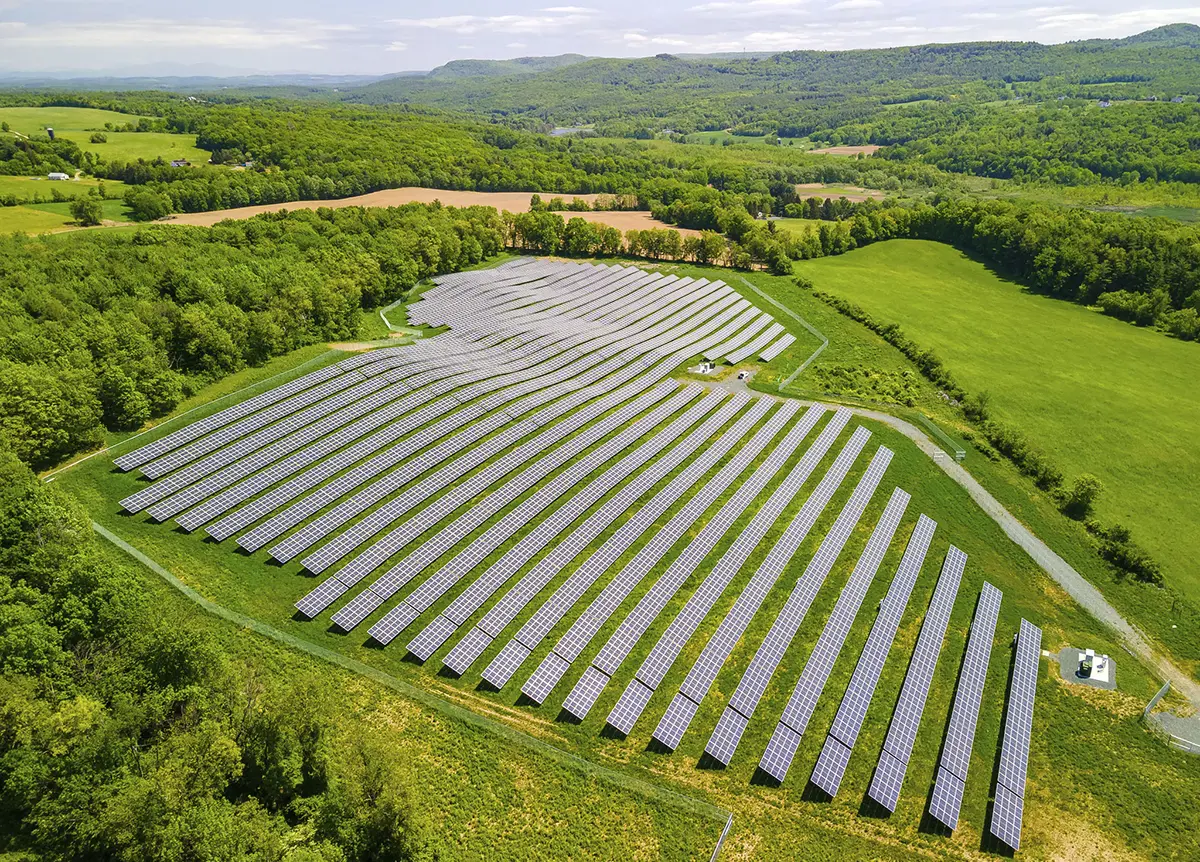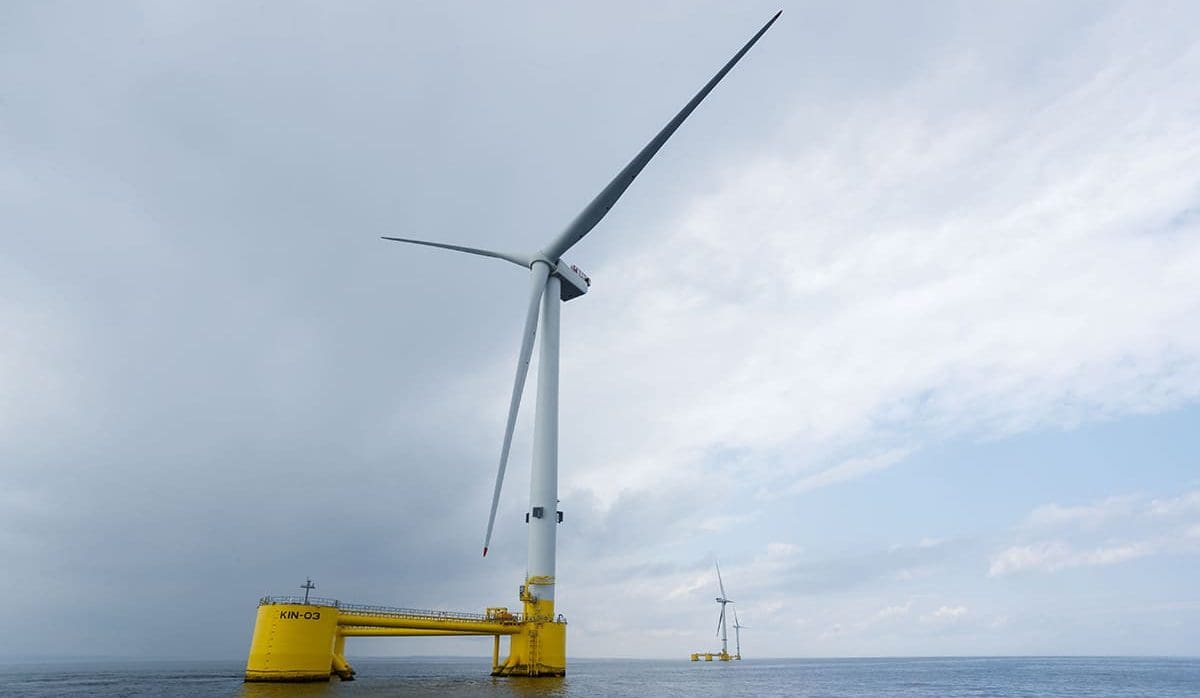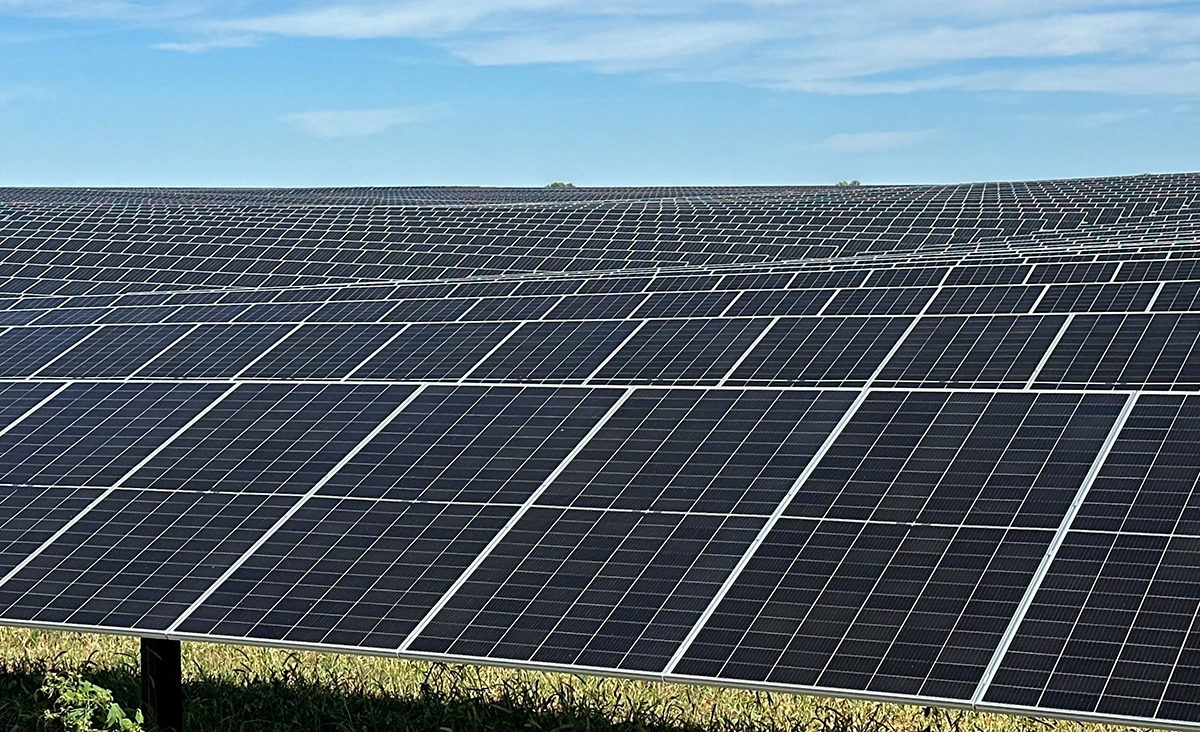
Clean Energy Economy Headlines US Policy At 2023 G7 Summit

The White House released a statement addressing major takeaways from this year’s Group of 7 (G7) Summit in Hiroshima, Japan. The G7 countries are Canada, France, Germany, Italy, Japan, the United Kingdom, the United States, and the European Union. Topics discussed in the White House release include building the clean energy economies of the future, responding to global challenges like the climate crisis, focusing on economic security, nuclear disarmament, fighting poverty, a united stance on Ukraine, and a united policy with China.
The Clean Energy Economy
In 2016, every G7 country signed the Paris Agreement. Although the United States has, at times since the signing, threatened to withdraw from the Paris Agreement, the launch of the Inflation Reduction Act (IRA) has been a major catalyst for meeting and exceeding the goal of the Paris Agreement to hold the increase in the global average temperature to well below 3.6°F [2°C] above pre-industrial levels” and pursue efforts “to limit the temperature increase to 2.7°F [1.5°C] above pre-industrial levels.”
Through incentives, the IRA hopes to boost investment in clean energy solutions while also providing a roadmap that other G7 countries can follow. The White House said that G7 Leaders recognized that achieving the goals of the Paris Agreement urgently requires significant new incentives, industrial policies, and public as well as private investments. Incentives, such as tax credits, are one of the simplest and most direct ways to bolster decarbonization efforts.
The Affirmative And Ambitious Development Agenda
President Biden’s affirmative and ambitious agenda supports developing countries and is centered around the United Nation’s 2030 Agenda for Sustainable Development and its Sustainable Development Goals (SDGs) which include investing in more resilient food and health systems and addressing the effects of climate change. The goals also include financial stewardship at home and abroad.
At the G7 Summit, the United States addressed its rising debt levels as a risk that can undermine its progress toward achieving the SDGs. Inflation is a primary cause of debt vulnerabilities in low- and middle-income countries as well. The United States fully supports the G20’s effort to improve the implementation of the Common Framework for Debt Treatments beyond the Debt Service Suspension Initiative (DSSI) in a predictable, timely, orderly, and coordinated manner.
The evolution of multilateral development banks (MDBs) to better address global challenges such as climate change, pandemics, fragility, and conflict, would also help reduce poverty. The G7 countries encouraged MDBs to expedite ongoing work and support the World Bank’s evolution agenda toward the 2023 World Bank Group and International Monetary Fund annual meetings, which will take place this October.
Effective climate change policy can help the G7 countries achieve their health-related goals of improving life expectancy and health security. Health services have declined since the onset of the COVID-19 pandemic. The G7 countries are working to restore health services levels by the end of 2025 as a response to concerning data that showcased the first global decline in life expectancy in nearly a century. The G7 countries also supported investments in healthcare workers and a universal health coverage program. Specifically, the United States is providing approximately US$10 billion in global health program funding with fiscal year (FY) 2022 funds, much of which supports essential health services, including addressing HIV/AIDS, tuberculosis, malaria, expanding access to water and sanitation, and supporting maternal and child health. One year ago, President Biden launched the Global Health Worker Initiative, which aims to address the global shortage of health workers.
The United States is also contributing US$250 million to the Pandemic Fund using FY 2023 funds. Subject to Congressional notification, the contribution would go toward strengthening global health security around the world. The White House said that the planned investment in the Pandemic Fund will continue to serve as a catalyst for additional contributions from other donors. The White House said it is committed to providing greater investments in health security to help break the cycle of panic and neglect in the wake of health emergencies.
The G7 countries are launching the Hiroshima Action Statement for Resilient Global Food Security, which is centered around building more resilient, sustainable, and inclusive food systems. G7 leaders have exceeded the US$14 billion commitment announced at the 2022 G7 Elmau Summit, mobilizing US$14.9 billion for food security. In terms of funding, the Untied States remains the global leader on food security. Since the beginning of 2022, the United States has provided more than US$13.5 billion in acute and medium- to long-term assistance for food security.
Economic Resilience And Economic Security
Bills such as the IRA, DOE investment programs, and EPA regulations support the development of new technologies that will be critical to making the energy transition, hydrogen economy, and other efforts a reality. At the Summit, G7 countries took steps to enhance strategic coordination on economic resilience and economic security by strengthening supply chains, reducing vulnerabilities, and countering malign practices that exploit and reinforce them. Cybersecurity underpins G7 efforts toward protecting critical and emerging technologies. The US has taken action to protect certain dual use technologies from falling into the hands of strategic rivals and limit intellectual property (IP) theft. In Hiroshima, G7 Leaders affirmed that this is a common interest across G7 countries.
Economic resilience and economy security are cornerstones of G7 policy. For that reason, the G7 countries are considering the risks of outbound investment, which could lead to less globalization, localized supply chains, and isolation policies outside of G7 member countries. Put another way, the G7 countries are saying that investments in countries such as China and Russia compromise economic security and should be limited going forward. To improve economic prosperity and discourage investments that could harm economic security the G7 countries launched the Coordination Platform on Economic Coercion to increase collective assessment, preparedness, deterrence, and response to economic coercion.
United Against Russia, Weary Of China
Russia’s invasion of Ukraine sparked an exodus of US and European companies out of Russia. Left with a lack of partnerships and a surplus of oil and gas, Russia turned to China as a potential buyer. China has been able to buy Russian oil on the cheap, a vital input to fuel its manufacturing-based economy. Russia’s eastern export strategy is not limited to natural gas. China’s crude oil imports from Russia grew 44% in 2022, compared to 2021. Recent Chinese government data indicates that Chinese imports of Russian oil were up nearly 25% in Q1 2023 versus Q1 2022. In fact, Russia is now exporting more oil to China than even Saudi Arabia.
The economic partnership between Russia and China has put immense pressure on the US and its allies to take a stand against economic cooperation with China. Therefore, it was unsurprising to see united G7 efforts toward ongoing support of Ukraine and a harder stance on China. In Hiroshima, G7 leaders announced a set of concrete actions to intensify the G7’s diplomatic, financial, humanitarian, and security support for Ukraine, to increase the costs to Russia and those supporting its war efforts, and to continue to counter the negative impacts of Russia’s war on the rest of the world, particularly on the most vulnerable people. The G7 is emphatic about economically isolating Russia to punish Moscow for the damage it has caused.
One of the goals of the G7 is to disrupt Russia’s military efforts by targeting inputs to its war machine. The G7 is looking to reduce reliance on Russian energy, since Russia’s sale of oil and gas serves as a revenue stream to fuel the war in Ukraine. The G7 is also cutting Russia out of the global financial system. The White House said that the Departments of Treasury, State, and Commerce rolled out new sanctions packages by expanding broad restrictions, preventing over 70 companies from doing business with Russia and other countries from receiving US exports, and sanctioning upwards of 300 individuals, entities, vessels, and aircraft, including actors across the globe.
To reduce the temptation for non-G7 countries to purchase inexpensive Russian energy, the G7 leaders met with the leaders of Ukraine, Australia, Brazil, the Cook Islands, Comoros, India, Indonesia, South Korea, and Vietnam to discuss international peace and security. The leaders issued an Action Plan on Food Security that notes, “especially in light of its impact on food security and the humanitarian situation around the world, we support a just and durable peace based on respect for international law, principles of the UN charter and territorial integrity and sovereignty.”
The White House statement said that “G7 leaders affirmed that G7 countries are not decoupling from China or turning inwards. At the same time, G7 Leaders recognized the need to respond to concerns and to stand up for our core values.” In other words, the US is not putting forth the same extreme measures with China as it is with Russia, but it’s also not turning a blind eye to China’s support of Russia.
It’s not just the China-Russia partnership that had the G7 countries on edge. Economic security issues, namely cheap labor and IP theft, continue to worry G7 countries as China’s non-market policies undercut goods and services from competing export nations. Chinese aggression toward Taiwan is an ongoing issue, as well as the situation in the East and South China Seas. The G7 countries reaffirmed their support of Taiwan as an independent country and their strong opposition to any unilateral attempts to change the status quo by force or coercion. The G7 leaders also voiced concerns about the human rights situation in China and called on China not to conduct interference activities or undermine the integrity of democratic institutions.









